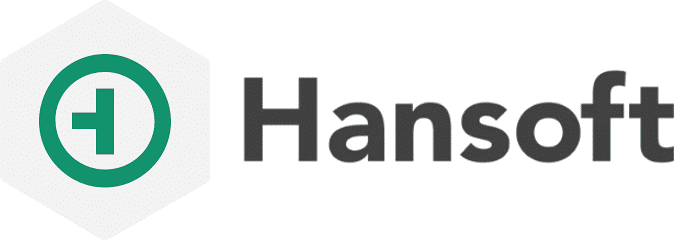Start Production
Setup Task Management
Benefits of Task Managements
- Encourages daily, weekly, and monthly progress.
- Helps breakdown a game into managable chunks of development.
- Setting Deadlines makes you and team members accountable.
Pick a Task Management Process that Works for You
For Individuals and Small Teams
- To Do Lists
- Kanban Boards
For Medium to Large Teams
- Agile Task Management and Team Workspaces
- Lists
- Sticky Notes
- Whiteboard
To Do Lists Apps
Kanban Boards
Team Workspace
Agile Production
Set Production Milestones
- Milestones are production goals that mark a significant accomplishment in development, typically completion of features and/or content.
- Breakdown your games production schedule into Milestones
- Set deadlines to complete each Milestone. Typically set to every 1 or 2 months.
Minor Production Milestones
- Implementation of a Feature, or collection of Features.
Major Production Milestones
Proof of Concept (Prototype)
- Built through rapid prototyping to validate the game's design.
- Contains the core game mechanics and game loop.
- It's fun on gameplay alone.
- Majority of the visual and audio assets are placeholder.
Vertical Slice (Pre-Alpha)
- A Demo that showcases the core gameplay experience.
- Some or all assets present are finalized.
- Useful for Pitching to Investors.
Code Complete (Alpha)
- All of the programming that makes up the game has been completed and fully implemented.
- Programmers will pivot to fixing bugs and implementing game content.
Content Complete (Beta)
- All the art and audio assets have been created and implemented into the game.
- Artists will fix or polish any issues with assets that exist in the game.
- Programmers will focus on fixing bugs and polishing game content.
Gold Master / Minimum Viable Product (Final)
- A finished product that contains the minimum amount of content that was planned to be released to market.
- All features and content are complete and all critical bugs have been fixed.
Post-Launch Updates / Downloadable Content (Sustainment)
- Expansions, Content Updates, Hotfixes, Patches,
- Patches typically include bug fixes and balance changes.
- Content updates and Expansions, typically include new levels, characters, and gameplay experiences.
Produce your Game
Make a Task Backlog
- Starting with the first Milestone, list out all the tasks required to complete the Milestone.
- Note if a starting a task is dependent on completion of a previous task/s.
Move Tasks to the Sprint Backlog and Set a Sprint Deadline
- Take some tasks from the Task Backlog (typically 1 to 5 per person), and place them in your Sprint Backlog.
- Set a Sprint Deadline. Typically set to every 1 to 2 weeks.
Develop Your Game
- Pick one of the tasks in your Sprint Backlog to Actively work on.
- Once you complete it, check it off and grab another task from the Sprint Backlog.
- Review work and verified it's been delivered.
Build and Playtest the Game
- Build the Game. Log any Build Issues in the Bugs Backlog.
- Playtest the Game. Log any Bugs or Issues in the Bugs Backlog. Note any User Feedback.
Do a Sprint Review
- Review Production.
- Make Adjustments to Schedule and Backlogs.
- Review Bugs and Feedback.
- Move any Critical Bugs from the Bugs Backlog to your Sprint Backlog.
Move to the Next Sprint with Bugs Backlog
- Repeat the Task Backlog process for the next Milestone.
- Create a new Sprint Backlog with a new task list.
- If there are any critical or game breaking bugs, add them to the Sprint Backlog.
- Edit, create, or delete tasks based on changes in Game Design.
- Give yourself more or less task items depending on results from last sprint.
Move to the Next Milestone
- Repeat the Task Backlog process for the next Milestone.
Rinse and Repeat
- And you will eventually have a game.
Avoid Production Pitfalls
Don't Try to Perfect your Task Backlog
- Focus your efforts on making the game.
Don't Polish Features Too Early
- Build a Good Game First. Polish a Game Second.
Fail Fast
- The sooner you fail, the sooner you can learn from your mistakes, and the sooner you can achieve Success.
Get others to Playtest your game
- They will tell you the truth about your game.
Design, Build, Play, Iterate. Find the Fun
Start testing and iterating as soon as possible
- Don't wait until the game is finished to start playtesting. You need to validate designs as soon as possible.
Expect the Design to change
- Feature that looks good on paper may turn out to be a horrible gameplay experience.
- Change existing designs to improve them, or implement alternatvie designs.
- If the design isn't fun or doesn't server a strong purpose, remove it.
Listen to Player Feedback
- Along with criticism, players will often suggest improvements or changes to existing design.
- Carefully evaluate what they say and determine if their concerns are valid. If they are, make the appropriate design changes.
Bugs and Glitches can become Features
- Bugs can sometimes introduce unexpected elements of fun.
Perform a Post Mortem
Take the time to review your work and learn from it.
Ask questions such as:
- Did you finish you game? Why or Why not?
- Does the game that was created match the original creative vision?
- Are players satisfied with the results?
- How was the game received by the audience?
- Is the team satisfied with the results?
- Did the team meet the original production schedule?
- Did the team have to Crunch?
- Was production within budget?
- What parts of the development process worked well? What mistakes were made along the way that could've been avoided?
- What processes could be changed or improved?
- Is there any work that was completed that can be reused for future projects?
- Does the team feel like they can continue working together on future projects?












